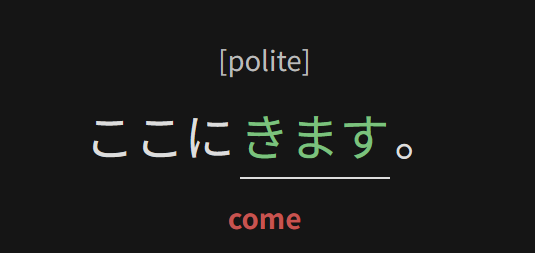@CursedKitsune Thank you for your answer!
Ill try to be a bit more forgiving with the redo feature I guess, I’m just worried I’ll use it to cheat myself out of studying^^. I also didnt know there was a full translation hint so thats really helpful to know!
@Sidgr Thank you for your answer! That makes a lot of sense and explains why its worded the way it is. I guess it still seems a bit odd to me, because if I replied to that question, I would just omit the “ここに” because its evident from context. But theres probably a scenario where it isnt evident and I would have to say the sentence in this specific way. And I guess Ive mostly been ignoring the nuance hints because N5 grammar doesnt have that many cases where it could be multiple grammar points, but I’ll try to pay more attention to that in the future!
@meagstudies Thank you for your reply! With the explanations provided in this thread it seems reasonable (if a bit counterintuitive) for it to be worded how it is. I was just confused as to why anyone would ever say something like that, but thats been mostly cleared up.
Thanks again to everyonefor the fast replies.
Also I dont know how to close a thread… 



